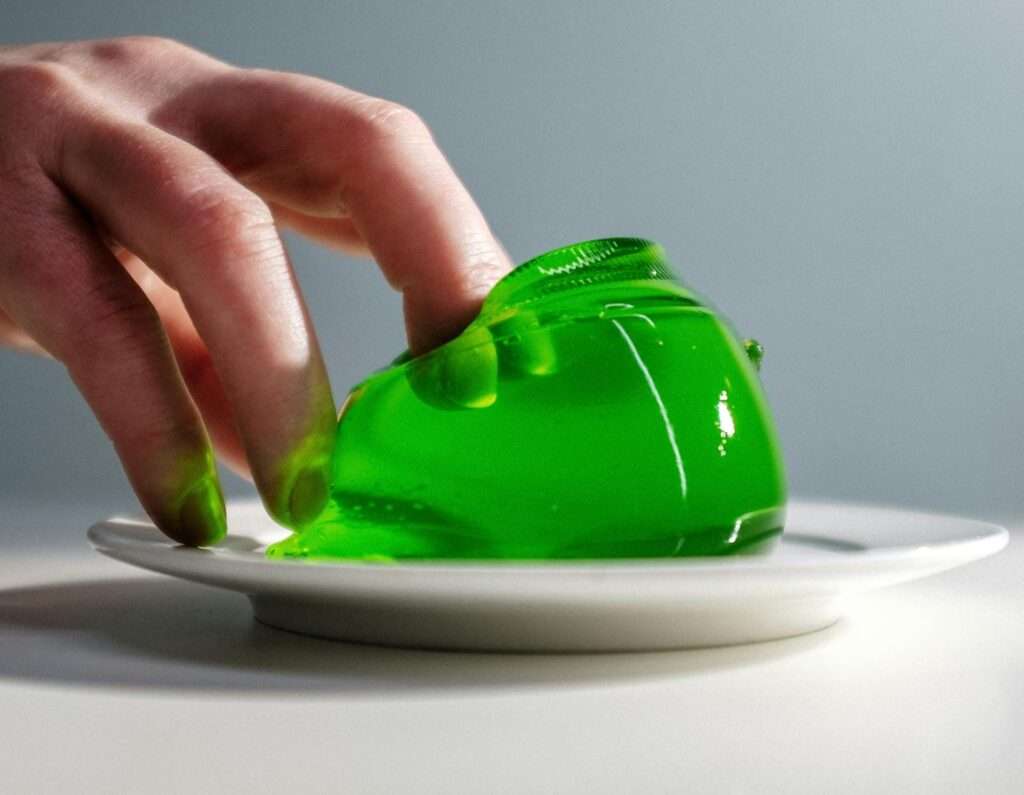Is Kosher Gelatin Halal? A Comprehensive Guide for Muslims
Kosher gelatin is a widely used ingredient in food products, especially in the West, due to its compliance with Jewish dietary laws. However, for Muslims, the question arises: Is Kosher gelatin halal?
The confusion stems from differences between kosher and halal requirements, particularly regarding the source of the gelatin and how the animal is slaughtered. Understanding these differences is essential when determining whether kosher gelatin is permissible (Halal) in Islam.
QUICK ANSWER: IT DEPENDS ON THE SOURCE AND THE METHOD OF SLAUGHTER.
What is Gelatin?
Gelatin is a colorless, flavorless substance derived from animal collagen. It is typically found in bones, skin, and connective tissues. It is used as a gelling agent in foods such as jellies, marshmallows, and gummy candies. While gelatin can also be sourced from plants, most commercial gelatin is animal-derived.
Common Sources of Gelatin
- Animal-derived: Usually from beef, pork, or fish
- Plant-based: Alternatives like agar-agar and carrageenan (used as substitutes in vegetarian or vegan products)

Difference Between Kosher and Halal Gelatin
Kosher vs. Halal Dietary Laws
Kosher and halal dietary laws share similarities, such as requiring animals to be slaughtered in a specific way, but they have key differences. For kosher, animals like cows must be slaughtered following Jewish guidelines.
However, kosher does not prohibit certain animals like pigs, as long as the food products don’t contain pork. In halal, pigs and other haram (forbidden) animals are strictly prohibited.
Key Distinctions Between Kosher and Halal Gelatin
- Animal sources: Kosher gelatin may come from cows, fish, or even pigs. In halal, gelatin from pigs is strictly forbidden.
- Slaughter process: Kosher slaughtering involves draining the blood from the animal, similar to halal. However, if the animal is not slaughtered by a Muslim, some Islamic scholars argue that it may not be halal, even if it’s kosher.
Sources of Kosher Gelatin
Animal-Derived Sources
Kosher gelatin can be made from:
- Beef: Gelatin derived from cows that are kosher-slaughtered
- Fish: Fish-based gelatin is often permissible under both kosher and halal standards
- Pork: Kosher gelatin may also come from pigs, which is not halal under any circumstances.
Plant-Based or Synthetic Alternatives
Some kosher gelatin is made from plant-based alternatives, such as:
- Agar-Agar: A seaweed-derived gelling agent
- Carrageenan: Extracted from red seaweed, commonly used in dairy and vegan products
Which Types of Kosher Gelatin Are Likely to Be Halal?
- Fish-based kosher gelatin: Usually considered halal
- Plant-based gelatin: Always halal as long as no cross-contamination occurs with haram ingredients
The Halal and Haram Debate on Kosher Gelatin
How Gelatin Made from Kosher-Slaughtered Animals May Be Halal
Gelatin sourced from kosher-slaughtered animals, such as beef or fish, may be considered halal by some Islamic scholars if the animal itself is permissible (i.e., not pork or non-halal slaughtered). However, the debate centers on whether the kosher method meets halal standards for mentioning Allah’s name during slaughter.
Challenges with Gelatin Sourced from Non-Halal Animals
Gelatin sourced from pigs or non-halal slaughtered animals is universally haram in Islam. Even if the gelatin is certified kosher, if it comes from pigs or improperly slaughtered animals, it cannot be considered halal.
Conclusion
The halal status of kosher gelatin depends on the source of the gelatin and the method of slaughter. If the gelatin is derived from kosher-slaughtered beef or fish and follows Islamic guidelines, it may be considered halal by some scholars.
However, gelatin from pigs or non-halal slaughtered animals is haram. For those looking to avoid any uncertainty, plant-based or halal-certified gelatin is a safe and permissible alternative.
Frequently Asked Questions
Can Muslims eat kosher gelatin?
It depends on the source of the gelatin. If it’s derived from kosher-slaughtered beef or fish, some scholars may consider it halal. However, if it’s derived from non-halal animals or pigs, it is haram.
Is kosher gelatin made from fish halal?
Yes, gelatin made from fish is generally considered halal by most scholars as long as it doesn’t contain any haram additives.
Is pork-derived kosher gelatin halal?
No, gelatin derived from pigs is strictly haram, regardless of whether it is kosher or not.
What are halal-certified alternatives to kosher gelatin?
Halal-certified alternatives include plant-based options like agar-agar and carrageenan, as well as gelatin derived from halal-slaughtered animals.








Your blog is so much more than just a collection of posts It’s a community of like-minded individuals spreading optimism and kindness